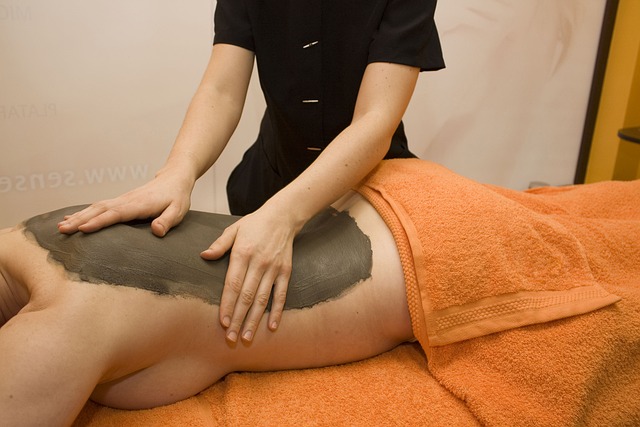Cold plunging, an ancient practice with Greek and Scandinavian roots, involves immersing oneself in cold water to harness therapeutic effects on mental health. Modern research highlights its potential benefits for stress and anxiety relief through the release of "feel-good" endorphins, stimulation of the vagus nerve, and improved blood circulation. Regular cold exposure trains the body's stress response, increases resilience, and offers an effective natural remedy for managing anxiety and promoting relaxation.
“Unwind and rejuvenate with the ancient practice of cold plunges—a natural remedy gaining modern popularity for stress recovery. This immersive experience involves submerging oneself in cold water, offering a unique path to mental wellness. From historical roots to contemporary research, we explore how cold water therapy can effectively combat anxiety and promote relaxation. Discover the science-backed benefits of cold plunges and learn practical ways to incorporate this simple yet powerful technique into your routine for optimal stress relief.”
Understanding Cold Plunges and Their Historical Usage for Stress Relief
Cold plunges, also known as cold water therapy or cryotherapy, involve brief exposure to cold temperatures, often in the form of immersing oneself in cold water. This practice has a rich historical background, with evidence suggesting its use dating back thousands of years. Ancient civilizations like the Greeks and Scandinavians utilized cold baths for their therapeutic properties, believing it promoted physical and mental well-being.
Throughout history, cold plunges have been employed as a natural remedy for various ailments, including stress and anxiety. The practice gained popularity in modern times due to its potential benefits for mental health. When one undergoes a cold plunge, the sudden temperature change triggers a physiological response that can lead to reduced stress hormones and an increased sense of calm. This method has become a go-to strategy for individuals seeking natural ways to manage stress and anxiety, offering a simple yet powerful tool for promoting relaxation and enhancing overall mental resilience.
The Science Behind Cold Water Therapy and Mental Health Benefits
The science behind cold water therapy reveals its profound impact on mental health and stress recovery. Cold plunges, involving brief exposure to cold temperatures, have been shown to trigger a series of physiological responses in the body. When immersed in cold water, the brain releases endorphins, often referred to as “feel-good” hormones, which can significantly reduce feelings of stress and anxiety. This natural painkiller helps regulate emotions and promotes a sense of calm.
Additionally, cold water therapy stimulates the vagus nerve, a key component of the body’s parasympathetic nervous system, responsible for promoting relaxation and restoring balance after periods of stress. The sudden cold shock also improves blood circulation, increasing oxygen and nutrient delivery to muscles while removing metabolic waste products. These physiological changes contribute to the calming effects of cold plunges, making them an effective natural remedy for managing stress and anxiety.
How Cold Plunges Can Effectively Reduce Anxiety and Stress
Cold plunges, involving brief exposures to chilly temperatures, have gained attention as a natural and effective way to support stress recovery. The practice leverages the powerful calming effects of cold water, which can significantly reduce anxiety and stress levels. When you immerse yourself in cold water, it triggers a physiological response that helps regulate your nervous system, promoting relaxation and reducing the body’s production of cortisol, often referred to as the stress hormone.
This therapy not only soothes the mind but also enhances blood flow, boosting circulation and the delivery of oxygen and nutrients to muscles. The sudden cold shock stimulates the release of endorphins, our body’s natural mood elevators, further contributing to a sense of tranquility and mental clarity. Regular cold plunges can be a game-changer for those seeking alternative methods to manage stress and anxiety, offering a simple yet profound way to nurture both physical and mental well-being.
Incorporating Cold Exposure into Your Routine for Optimal Relaxation
Incorporating cold exposure into your daily routine can be a powerful tool to combat stress and anxiety, offering a natural and effective method to support mental health. Cold plunges, such as immersing yourself in ice-cold water for a short period, have gained popularity for their potential to induce a profound sense of calm. This practice stimulates the release of endorphins, often referred to as ‘feel-good’ hormones, which can reduce stress hormones like cortisol. As a result, cold water therapy provides an immediate and intense relaxation response, helping to alleviate symptoms of anxiety and promote mental clarity.
The calming effects of cold plunges extend beyond the initial immersion. Regular exposure to cold temperatures can train your body’s stress response, increasing resilience to daily stressors. It also stimulates blood flow, enhancing oxygen and nutrient delivery to muscles and organs, which contributes to overall well-being. Whether it’s a quick dip in an ice-cold lake, a refreshing shower, or using ice packs, incorporating these practices into your self-care routine can be a game-changer for managing stress and anxiety, offering a simple yet profound way to find mental respite.
Cold plunging has emerged as a powerful, natural tool to enhance stress recovery. By embracing the therapeutic benefits of cold water therapy, individuals can tap into an ancient practice that science now validates. Incorporating regular cold exposure into daily routines proves effective in reducing anxiety and promoting mental well-being. So, why not take a dip and experience the calming effects of cold plunges for yourself?
